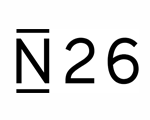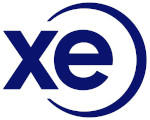Checking accounts
The most common form of account in the U.S. is the checking account. Most financial transactions are completed using this type of account, such as receiving wages or paying the rent. In general, a checking account allows you to:
· Withdraw money from your bank using an ATM card (debit card). This is usually free of charge at your own bank's ATMs, but a fee of a couple of dollars may be charged for withdrawing money from other banks' ATMs
· Transfer money between accounts
· Pay bills using your check book
· Set up regular payments (even of variable amounts, e.g. telephone bills and health insurance contributions) to be paid by direct debit (Bill Pay)
· Use online banking and telephone banking
At many banks you can choose between several current accounts with various facilities (e.g. online banking, interest, credit card at no charge, etc.) but the fees also vary. As a student you can apply for exemption from the usual account charges.
Before you choose a bank, make sure that you can answer the following questions:
· Once I have opened the account, can I immediately draw money from the ATM?
· Where can I withdraw money free of charge? (note that many banks have agreements with other banks which allow you to withdraw cash free of charge within the whole network)
· Can I pay my bills online?
· Will I receive an ATM card immediately?
· Will I be able to get a credit card? When can I apply for the card and how long will it take to process it?
· What are the fees on my bank account?
· Will I get an overdraft protection and what are the fees for this service?
An overdraft protection allows you to go overdrawn up to a certain limit set by the bank. The amount of this credit is normally related to your monthly income. Overdraft interest rates are anything but low, so you are recommended to use them only for emergencies.
Before offering some services, the bank will watch your account over the first few months to check whether money is regularly being credited to it. Note that American banks have been traditionally quite conservative when it comes to handing out credit cards. In order to have a credit card in the United States you will need a valid Social Security number.
Savings accounts
If you want to put money aside, you can set up a savings account to get a better rate of interest. A savings account cannot substitute a checking account. If you need services such as direct debits, bill pay and a check book, bear in mind that these services are generally not available with savings accounts. Check with your bank what the best interest rate they can offer you are.



